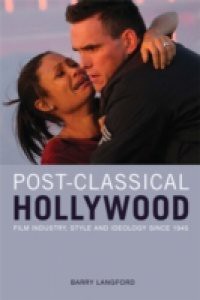At the end of World War II, Hollywood basked in unprecedented prosperity. Since then, numerous challenges and crises have changed the American film industry in ways beyond imagination in 1945. Nonetheless, at the start of a new century Hollywood's worldwide dominance is intact - indeed, in today's global economy the products of the American entertainment industry (of which movies are now only one part) are more ubiquitous than ever. How does today's "Hollywood" - absorbed into transnational media conglomerates like NewsCorp., Sony, and Viacom - differ from the legendary studios of Hollywood's Golden Age? What are the dominant frameworks and conventions, the historical contexts and the governing attitudes through which films are made, marketed and consumed today? How have these changed across the last seven decades? And how have these evolving contexts helped shape the form, the style and the content of Hollywood movies, from Singin' in the Rain to Pirates of the Caribbean? Barry Langford explains and interrogates the concept of "post-classical" Hollywood cinema - its coherence, its historical justification and how it can help or hinder our understanding of Hollywood from the forties to the present. Integrating film history, discussion of movies' social and political dimensions, and analysis of Hollywood's distinctive methods of storytelling, Post-Classical Hollywood charts key critical debates alongside the histories they interpret, while offering its own account of the "post-classical." Wide-ranging yet concise, challenging and insightful, Post-Classical Hollywood offers a new perspective on the most enduringly fascinating artform of our age.

